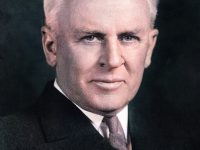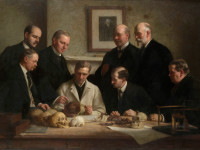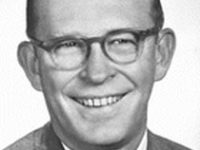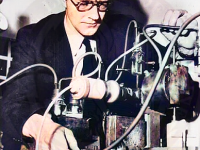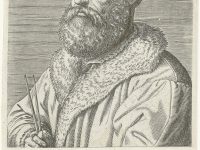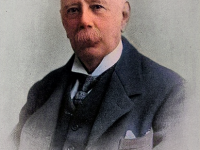Robert Millikan and the Millikan experiment
On December 19, 1953, US-American physicist and Nobel laureate Robert Andrews Millikan passed away. Millikan was honored with the Nobel Prize for Physics in 1923 for his measurement of the elementary electronic charge and for his work on the photoelectric effect. Millikan‘s famous oil-drop experiment (1911) was far superior to previous determinations of the charge of an electron, and further showed that the electron was a fundamental, discrete particle. In later work,…
Read more











